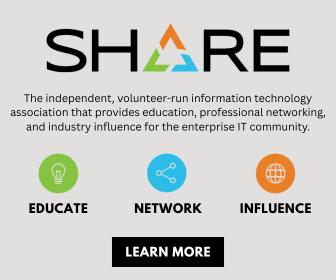The Ailments of Age
We’ve come to the final installment of our homage to COBOL. Let’s look at the challenges it faces in the future.
You do not reach 65 years without having endured some difficult experiences. COBOL bears those scars just as anything else would at that age. And to think the future is smooth sailing would also be dangerously conceited.
What are the risks? Let’s explore the top four.
COBOL Risks
1. People.
At its age, COBOL has beaten any reasonable prediction of the longevity of the systems built using it in the 1960s or 1970s. COBOL has outlasted even the most generous estimates of its own tenure in computing and the applications created with it. It has also outlasted—by some margin now—the IT staff who programmed the first incarnations of those systems.
Those long-running systems are now the responsibility of a reduced staff pool. The dwindling requirements for COBOL in many organizations mean fewer paid roles and, therefore, fewer COBOL-trained graduates are coming onto the market. Of the tens of thousands of higher education institutions globally, those teaching COBOL number only in the hundreds. In short, the talent pool is a concern.
Only the tireless work of a handful of academic instructors and professional training organizations, with the support of various community and vendor-led programs, seeks to reverse the trend. COBOL faces the fundamental challenge that, without a new generation of practitioners, it will struggle to continue.
Of the work underway to tackle that challenge, Len Santalucia, Governing Board Chairperson of the Linux Foundation Open Mainframe Project, explained, “The problem with COBOL is that the industry has not created enough new COBOL developers– but that is rapidly changing. The Open Mainframe Project has found over 1,000 COBOL skilled resources worldwide available for hire, and professors are teaching COBOL again.”
“The Open Mainframe Project has found over 1,000 COBOL skilled resources for hire, and professors are teaching COBOL again.”
Len Santulucia, Chief Technology Officer, Viacom Infinity, a Converge Company
As others would testify, the COBOL skills issue has less to do with language. It is more of an IT resource planning and personnel investment task, which appropriate training and technology would help tackle quickly. Santalucia further elaborates, “The various analysis technologies available on the market can assist any organization to quickly and easily modernize COBOL applications perfectly.”
2. Technology.
Technologically speaking, COBOL is mature and robust. What matters now, 65 years later, is for COBOL to remain technically relevant and capable into the future.
COBOL faces two significant forces in this regard. First, the enormous disruptive force of artificial intelligence is unfolding in front of us. COBOL will succumb to the gravitational pull of AI, and the intersection of the two will doubtless create significant opportunity and responsibility for those managing the future of the language and its usage. The next year or two will surely see further market shifts.
Second, regardless of how AI shapes the future technology landscape, COBOL faces a genuine existential challenge every day–-namely, decision-makers deciding to walk away from the language forever. Exceptionally good technology in the form of CRM/ERP systems or alternative languages (and automated refactoring technology) frequently knocks on the door of every COBOL application owner.
3. Reputation.
The popularity of digital technology owes a lot to the machinery of marketing, innovation, and branding. Organizations with deep pockets can afford to generate high market awareness and solid brand identity for an entire range of new technologies.
COBOL, broadly speaking, benefits from none of those things. The few COBOL tool vendors are — understandably — quite muted about its value; it simply isn’t as newsworthy as quantum computing or data science by comparison.
Some critics judge COBOL based on what it was not, creating an underinformed reputation with unfortunate sticking power. Furthermore, COBOL’s notoriety for being all upper case and fixed format (not true); its antiquated interfaces and inconsistency with agile practices (not true); and its use of global variables (still true) — demonstrate that COBOL’s heritage counts against it, as it is sometimes harshly judged based on its past.
We must credit lobby groups for their continued vocal support for the language, including the Open Mainframe Project (which includes several active COBOL-related projects), and communities such as the COBOL Programmers groups on Facebook with 28,000 members and LinkedIn’s many COBOL forums. But these cheerleaders represent mere drops in an ocean of technology influence, the rest of which studiously fails to mention COBOL.
To continue to thrive, COBOL must remain visible and demand representation at the top table of IT strategy in the future. Marianne Belotti, author of the illuminating text on legacy systems, ‘Kill it with Fire,’ explains, “COBOL can be just as effective a solution for organizations as any other programming language—thousands of large businesses that use it for critical functions demonstrate that.”
4. Business Decision Makers.
At a mundane level, as companies evolve, large-scale system transformation programs (sometimes including IT replacement projects) start and can risk erosion of the COBOL footprint. Every organization must decide whether to continue with COBOL. The existential challenge manifests as one simple question at the inflection point: Does the decision-maker value COBOL?
COBOL came into being when the primary objective was to enable people who knew nothing about technology to learn it. Back then, it was not even called “technology.” That perspective shaped what COBOL became, shaping others’ attitudes towards it in later years.
Meanwhile, the language continued to evolve and got on with its intended purpose, running huge chunks of the commercial world’s IT systems without fanfare or error. Whatever biased attitudes and opinions have prevailed since about COBOL, if they are based on personal preference, they are unsound. The decision as to where to take COBOL in the future is a business decision only.
Looking Ahead
Whether anyone will debate COBOL’s long-term prospects in 65 years is impossible to imagine. But whatever technology succeeds COBOL, it faces the enormous task of replacing the singularly most important business language that ushered in a modern era.
A longtime member of the COBOL Working Group at the Open Mainframe Project, Reg Harbeck, and Chief Strategist for Mainframe Analytics Ltd., wraps it up perfectly:
“Sixty-five years later, the language that took on the mantle of automating the hum, let alone a squeak, as it quietly continues doing the business that it inherited from millennia of business best practices… Not only has no other programming language come along that handled the basics of business noticeably better, and not only has COBOL, and the platforms where it shines, continued to greatly improve, but the hundreds of billions of lines of COBOL code that run the world economy have an insuperable inertia because, well, they work. There is literally no business case to displace or replace it, let alone any pretender to that role that is demonstrably better in the essential ways that we rely on COBOL to keep things silently running along.”
Frequently ignored and often derided, COBOL has proved more resilient—and valuable to the global economy—than even its most ardent proponents could have predicted. Possessing formidable attributes, COBOL has shown a peerless determination to hang in there and is fully deserving of its anniversary celebration.
Despite the myriad challenges COBOL has and will continue to face, it is hard to imagine a future without it. As internet pioneer Vint Cerf famously said, “There’s an old maxim that says, ‘Things that work persist,’ which is why there’s still COBOL floating around.”
Derek Britton offers a special thanks to members of the Open Mainframe Project COBOL Working Group, and to all who contributed comments to this article, and the comprehensive COBOL 65 Guest Book.
Read Derek Britton’s four-part homage to COBOL.









0 Comments